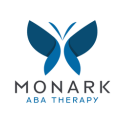Being the parent of a newly diagnosed child with Autism or even the parent of a young child with Autism comes with first understanding what is Autism. Then, understanding that you are not alone and that there are services for Autism such as Applied Behavior Analysis (ABA). But what is ABA and why would your child benefit?
ABA Therapy is the science recommended by the U.S. Surgeon General and American Academy of Pediatrics for the treatment of Autism. Children with Autism can have deficits in the areas of language, social skills, daily living skills as well as exhibit problematic behaviors. ABA Therapy addresses these issues by using researched evidence-based treatments that increase language, social skills, and daily living skills while reducing and/or eliminating problematic behaviors.
By providing ABA in the Home and/or at school, we provide benefits such as providing a therapy where they will need to use the skills. This allows us to also demonstrate and provide training to family members more easily. In addition, it allows us to provide many of our specialized programs such as toileting training, eating, and so much more within the natural context of their day. We work closely with you and the school staff to ensure consistency and quality services alongside our behavior consulting and parent training services.
Children with Autism may not get diagnosed until their middle school years or even beyond. Formally referred to as Asperger’s or sometimes called High Functioning Autism, the individuals are often fully verbal and struggle more with social skills than any other area. However, they may often have language and daily skill deficits that are not as obvious. Along with problematic behavior and deficits in social skills, these children are often diagnosed at 11 years or older. You are not alone and it is never too late to seek out services for your child.
Often focusing heavily on language and its related impact on social skills, ABA Therapy is provided for many children such as this. These children may often be literal thinkers and despite recommendations by some, social skills do not come naturally to these types of individuals nor should they be placed into groups to learn social skills at first. In fact, they have to learn social skills like one would teach math. That is one skill that builds upon a previously learned skill. So, we begin 1:1 with our clinical staff to find the deficits and fill in the gaps that your child is struggling with at home and/or at school convenient to your schedule.
We then move to a 1:2 ratio with a familiar peer, so that they can generalize and learn the skills with another child. In addition to these services, we also provide behavior consulting and parent training services. Once your child has become familiar with another peer and can demonstrate the social skills and other related skills, we move them into a larger and larger format group until they demonstrate skills with multiple peers.

